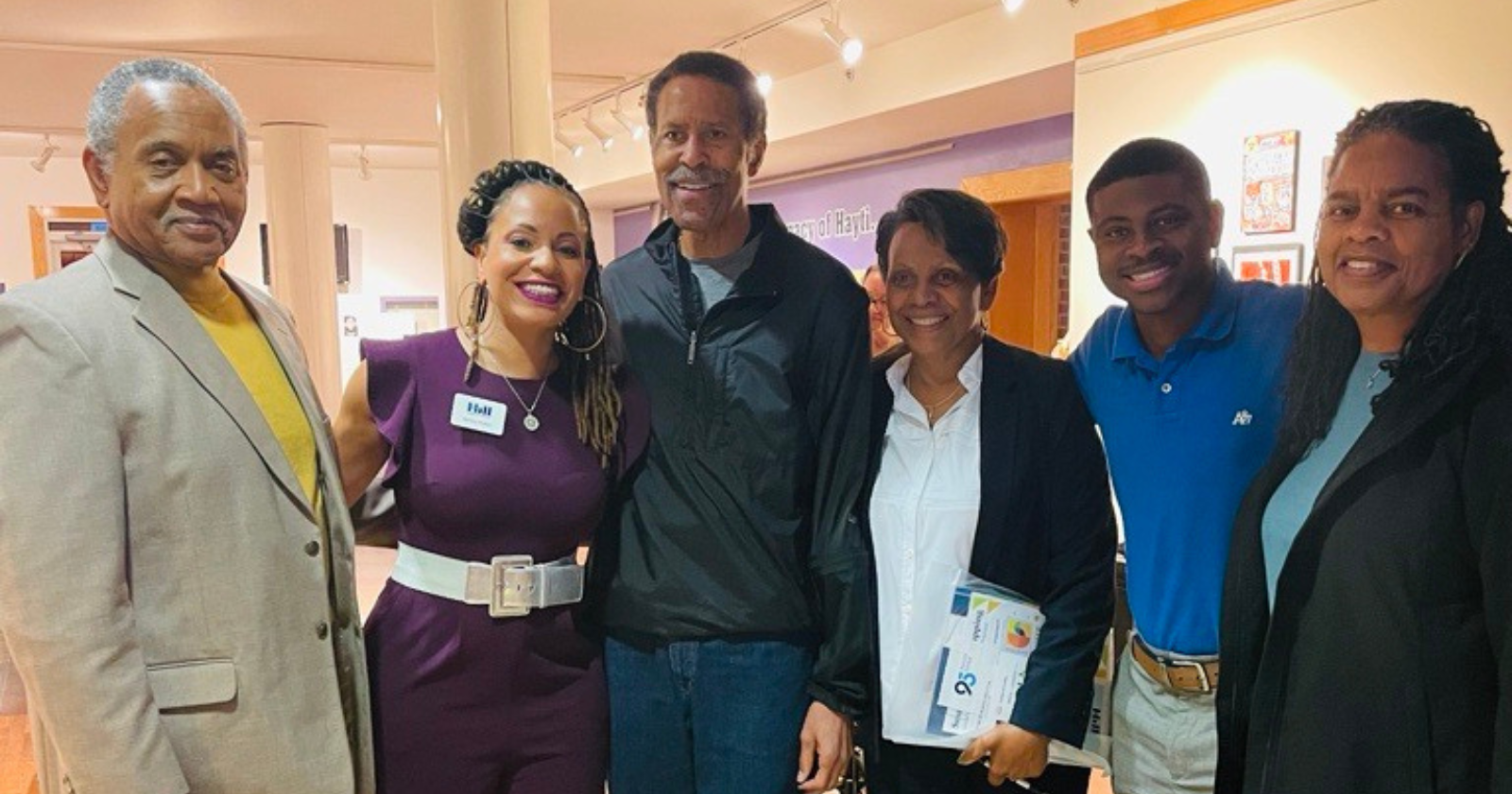A passion for education and a love for the Bull City both run in Dr. Kendra O’Neal’s blood.
Kendra currently serves as Hill Learning Center’s Director of Diversity & Community Engagement. Born and raised in Durham, she comes from a long line of proud educators.
“I always loved playing teacher as a little girl,” she remembers, recalling how she helped grade papers with her grandmother, a former seventh-grade social studies teacher. When she was barely a teenager, Kendra taught Sunday School at her family’s church, eventually serving as Sunday School superintendent.
“I always felt like the ability to teach was a gift I had, and building relationships was another gift I was given,” she explains.
After graduating from Northern High School, she earned a B.A. in elementary education and later an M.S. in school administration from UNC-Chapel Hill, then completed a Ed.D. in educational leadership and administration from High Point University.
Kendra first learned about Hill Learning Center in her first year of teaching, in 1999, as a fifth-grade teacher at Eno Valley Elementary. One of her students, Kendra remembers, had “the messiest desk imaginable. And his bookbag was a horror story.” Her student was “apathetic because he did not have a lot of confidence.”
However, after he began attending Hill for half the school day, Kendra saw things begin to change.
“Within the first month or two, his confidence level increased so much. He became a totally different kid. And that stuck with me.”
Her student’s experience was one example of how supportive teacher-student relationships, along with a structured-yet-personalized curriculum, can make an incredible difference in students’ lives.
Kendra’s father, a former high school principal, taught Kendra the importance of building community at school. “He was very well loved, and he did that by making sure he established personal connections with people. You felt like he knew you if you met him only once,” she says with palpable awe.
Kendra aspires to emulate her father’s ability to connect with others by making them feel valued and supported. “I’ve always had a desire to make sure people are comfortable around me and feel welcome,” she explains.
Helping people feel a sense of belonging is a driving factor in Kendra’s work, and she understands that people feel they belong when they are appreciated holistically and authentically.
In 2023, Hill Learning Center created the Director of Diversity & Engagement position now occupied by Kendra. With this role, Hill sought to foster greater support for organization-wide efforts to increase diversity and belonging, continue furthering access to Hill’s programs, and engage even more intentionally with the local community.
“There’s so much diversity within the learning differences community,” Kendra explains. “When we’re looking at people who are from marginalized communities, it’s really important that we appreciate the interconnectedness of all the identities they bring to us on top of their learning differences.”
Asked where she has already seen Hill’s progress in its DEI efforts, Kendra responds: “We have really delved into understanding our history, recognizing we have been an organization that has celebrated diversity since 1977 when it comes to learning differences and neurodiversity.”
“But we’ve also had to be willing to examine where our gaps are,” she continues.
One of those gaps, she explains, was bringing vital educational programming to the wider community by “literally meeting people where they are” and hosting events in accessible locations.
“We want to be embedded in our community and that means building relationships with organizations that are already established,” she points out.
“I have named myself as our community ambassador,” she says with a spirited grin.
Then she adds, “But that really is the role. I get to introduce people to Hill because I have had the time and space to cultivate new relationships in our very own backyard.”
One of her proudest professional accomplishments thus far has been organizing a screening and panel discussion of the documentary The Right to Read at Hayti Heritage Center in October 2023. The event brought together stakeholders from several local organizations, including EducationNC, KIPP North Carolina, and Durham Public Schools.
“We had teachers come from as far as Johnston County,” she beams. “The discussion panel helped explain that literacy is a civil right and that the national literacy rate problem is solvable.”
In her work and in her private life, Kendra believes that sustainable, meaningful progress towards breaking down systemic inequities can be made only when organizations dedicate resources to these efforts in an intentional way.
“This work has to have a home. Committees are great, but this work really has to have a home – a safe place – and leadership for us to continue to grow and live in what we espouse.”
Social justice-oriented efforts need dedicated space and resources. Folks doing the work need a sense of belonging and the chance to build authentic relationships.
For Kendra, there’s no better place for this work than in the Bull City.
“It’s important for me to be a part of how Durham transforms, especially in the world of education and our desire to see our students become world-class citizens,” Kendra says.
But she knows her work and the efforts of organizations like Hill Learning Center cannot find success without community support.
“We’ve been in the inclusion world since 1977, working to include students who have been excluded in other places. We’re at the precipice of making sure that inclusion at Hill goes beyond learning differences.”
